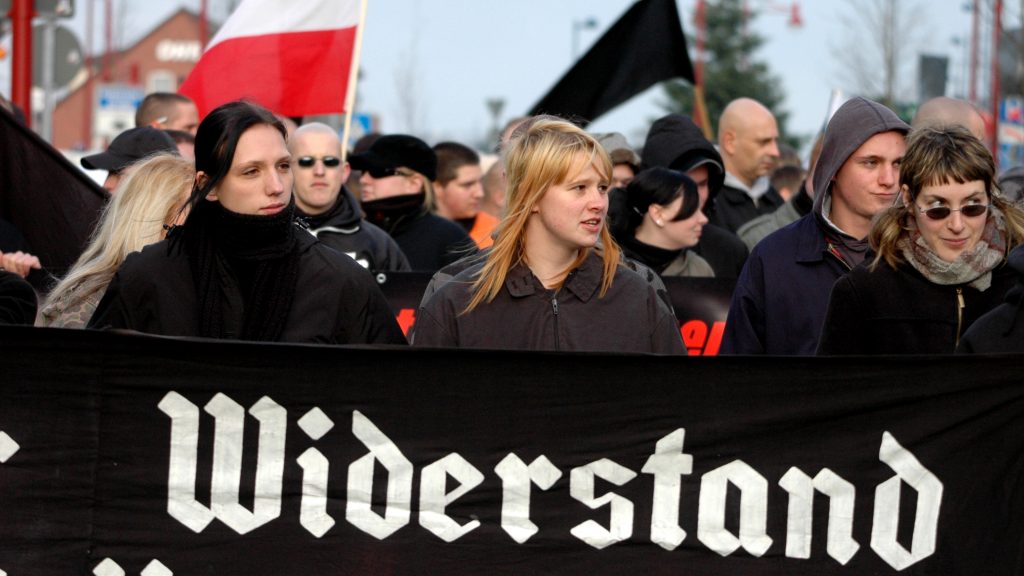When considering how to strengthen democratic norms and counter right-wing extremism, gender is rarely part of the conversation. Women and femininity are often overlooked as part of far-right movements, both in theory and in practice.
The Stereotype of Jackbooted Men
Most anti-neo-Nazi initiatives today focus almost exclusively on men, with an emphasis on the interplay between right-wing extremism and masculinity. When we think of a “neo-Nazi”, the image that typically comes to mind is that of a violent man with a shaved head and jackboots. Consequently, many projects targeting young people—especially young men—focus on this stereotype. However, this approach has two major shortcomings.
First, these initiatives often fail to address toxic masculinity as a broader structural issue. While they recognize that many men and boys feel insecure about their masculinity – and that far-right groups exploit this vulnerability – few projects challenge the traditional masculine norms that underpin much reactionary ideology. Programs like boxing lessons to boost boys’ self-confidence are well-intentioned, but they sidestep the deeper question: why is the ability to fight equated with being a “real man”?
Second, and perhaps more importantly, current anti-neo-Nazi projectsfrequently ignorewomen’s roles in the movement. Although far-right ideologies promote hyper-patriarchal gender roles, generally attracting more men than women, there are women who also support such “traditional values”— and women are just as capable of racism as men. The very real contributions of women to far-right movements, and the dangers these women pose, are often overlooked.
Gaps in Research
The lack of attention to women’s roles in the far right extends beyond practice and into academic research. While the links between toxic masculinity and right-wing extremism have been studied for decades, the connections between femininity and neo-Nazism remain largely unexplored. This is despite the fact that women play a significant role in building neo-Nazi communities and upholding traditional gender norms in “Volk-communities”. We believe there is a serious gap in research on “right-wing femininity”, and understanding this concept is crucial to developing effective pedagogical approaches.
A New Approach: Developing a Gender-Inclusive Practice
With the establishment of a “Center for Gender and Right-Wing Extremism” at the Foundation, we aim to develop and implement new concepts for addressing these issues in real-world projects. We also seek to encourage further research on the subject and to build a network of sociologists, political scientists, and other scholars whose work intersects with this topic.
